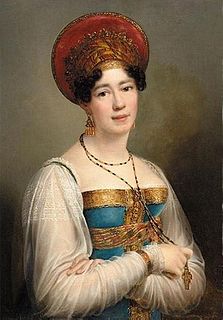A Quote by Heinrich Himmler
All of us, who are members of the Germanic peoples, can be happy and thankful that once in thousands of years fate has given us, from among the Germanic peoples, such a genius, a leader, our Fuehrer Adolf Hitler, and you should be happy to be allowed to work with us.
Related Quotes
If the book we are reading does not wake us, as with a fist hammering on our skull, why then do we read? So that it shall make us happy? Good God, we should also be happy if we had no books, and such books as make us happy we could, if need be, write ourselves. But what we must have are those books which come upon us like ill fortune, and distress us deeply, like the death of one we love better than ourselves; like suicide. A book must be an ice-axe to break the sea frozen inside us.
I have given up the ambition to be a great scholar. I want to be more- simply a human. . . . We are not true humans, but beings who live by a civilization inherited from the past, that keeps us hostage, that confines us. No freedom of movement. Nothing. Everything in us is killed by our calculations for our future, by our social position and cast. You see, I am not happy-yet I am happy. I suffer, but that is part of life. I live, I don't care about my existence, and that is the beginning of wisdom.
We all have direct experience with things that do or don't make us happy, we all have friends, therapists, cabdrivers, and talk-show hosts who tell us about things that will or won't make us happy, and yet, despite all this practice and all this coaching, our search for happiness often culminates in a stinky mess. We expect the next car, the next house, or the next promotion to make us happy even though the last ones didn't and even though others keep telling us that the next ones won't.
The notion of travelling to far places in order to study alien peoples and cultures, is unique to Western man; it springs from the predatory genius of the Greeks; no primitive peoples have ever come to study us. This is, on the one hand, a disinterested, intellectually inspired impulse. It is one of our glories. But it is, on the other, part and parcel of exploitation. [] The Western obsession with inquiry, with analysis, with the classification of all living forms, is itself a mode of subjugation, of psychological and technical mastery.
Our enemies must not deceive themselves-in the 2,000 years of German history known to us, our people have never been more united than today. The Lord of the Universe has treated us so well in the past years that we bow in gratitude to a providence which has allowed us to be members of such a great nation. We thank Him that we also can be entered with honor into the ever-lasting book of German history!





























